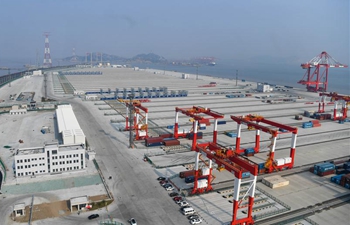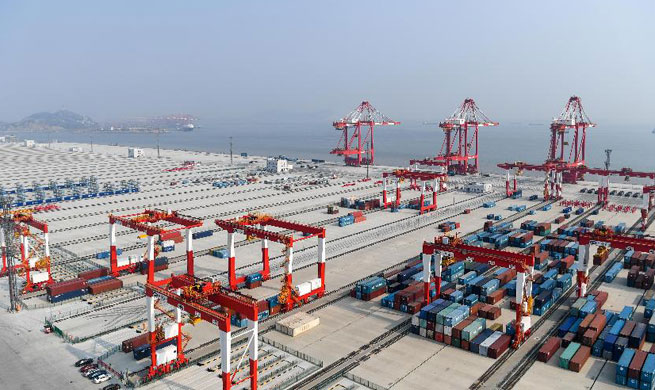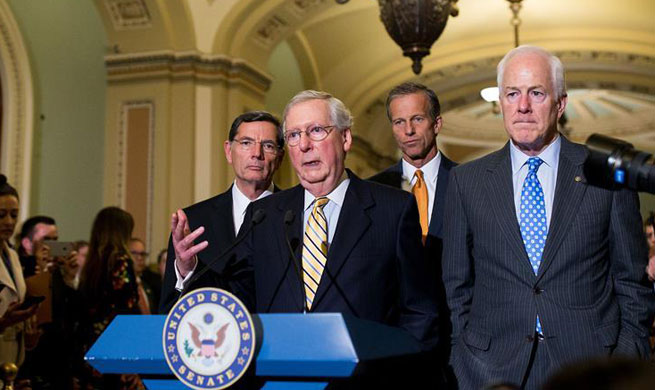by Justice Lee Adoboe
ACCRA, July 26 (Xinhua) -- As some major banks in Ghana are struggling to meet up with the roadmap and deadline for recapitalization, some experts are of the view that the country's banking sector needs serious capital injection to enable the banks to remain in competition.
Sam Bediako-Asante, Managing Director of SamBed Consult, a leading financial market consultancy in the country, told Xinhua Tuesday via telephone that some of the smaller banks should merge with bigger ones in order to create that synergy with which to do serious business.
"I think there should be mergers and acquisitions in the banking industry. Our traditional banks should come together to form very big banks. That will be good for the economy, because the capital base of our traditional banks is too small and so they are not able to compete with even the foreign banks that come here to do business," Bediako-Asante said.
The Minimum capital requirement for commercial banks in Ghana is 120 million Ghana cedis (27.2 million U.S. dollars) with the central bank considering at least doubling that figure by the end of the year.
The industry analyst was of the opinion that if that were done, the banks could consolidate their strengths and then boost economic activities in the country, which will further help them to boost their own capital base and then venture on to the African terrain and then perhaps compete globally as well.
About nine out of the 36 commercial banks have been going through crippling liquidity challenges partly due to excessive exposure to the country's energy sector and the central bank has drawn a roadmap of recovery for them which expires in September.
Comparing the Ghanaian situation with other countries, Bediako-Asante urged Ghanaian banks to learn from Nigeria and South Africa where there are few banks but are well resourced and are doing business across the continent and even some on the global stage.
He therefore urged that the minimum capital requirements for banks be raised to either 500 million cedis (113.3 million dollars) or 1 billion cedis (226.7 million dollars).
The expert urged the central bank to crack the whip against any of the local banks which is unable to meet the September deadline for recapitalization.
Central bank governor, Ernest Addison observed during the Monetary Policy Committee (MPC) press conference on Monday that although the financial sector remained vibrant, the quality of lending weakened "over the last few years with non-performing loans reaching 21.7 percent in May 2017."
"Following the Asset Quality Review (AQR), the Bank of Ghana has been implementing a roadmap for recapitalization which required the few banks which did not meet the minimum capital adequacy ratio to submit capital restoration plans. The implementation of the roadmap is on course. Most of these banks have met the minimum requirement and a few are on course to doing so within the stipulated timeframe," Addison, assured.
He cautioned that any bank which does not meet the deadline of September would face the whip of the regulatory dictates.
"If you recollect at the time that the asset quality review was done and the road-map for financial stability was agreed on the banks were written to in March with various hurdles to meet
"We had a 90-day hurdle, and 90 days from March I think ended in June, and another 90 days ends in September so those are the times that have been stipulated for meeting those requirements," he stressed.
In his comment another banking expert, Nana Otuo Acheampong, Executive Director of the Kumasi based Osei Tutu II Centre for Executive Education and Research (OTCEER), told Xinhua he was confident that the nine banks would be able to meet the September deadline stipulated by the central bank for meeting the Capital Adequacy ratio, especially as just two are left to do so.
Acheampong, a former Head of the Faculty of Corporate Reporting and Investment at the Ghana Banking College, cautioned that nothing be done to disturb the banking environment since it is one of the engines of growth in the economy.

















